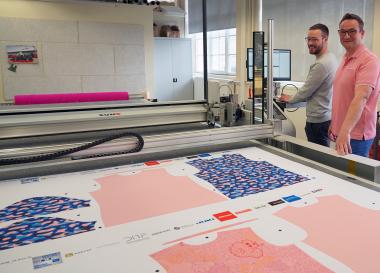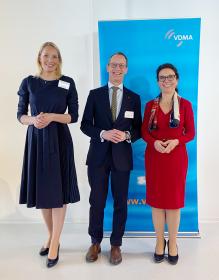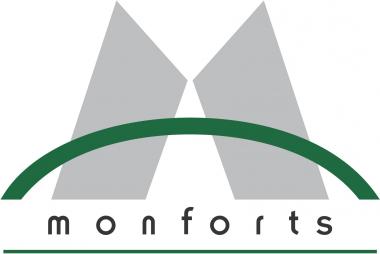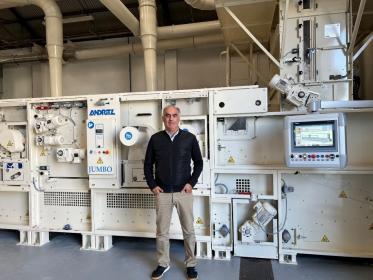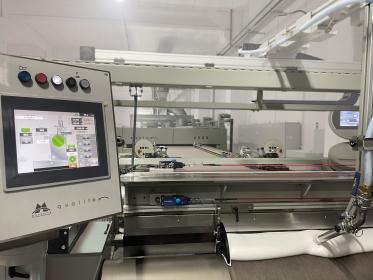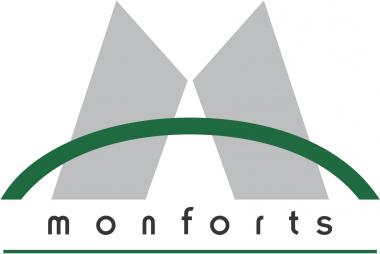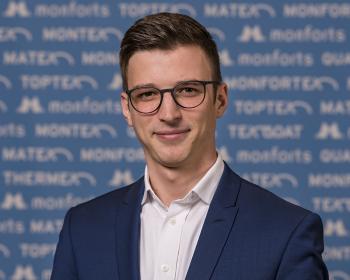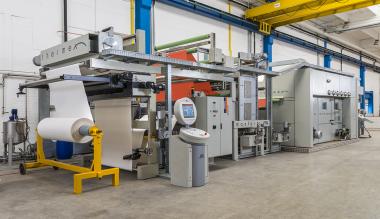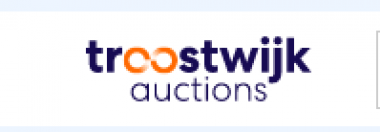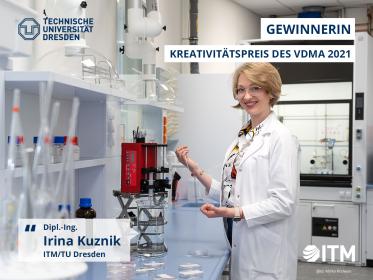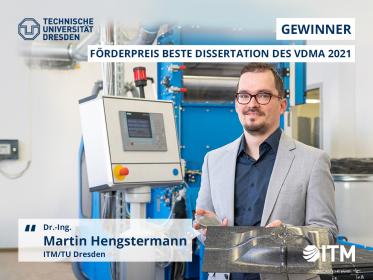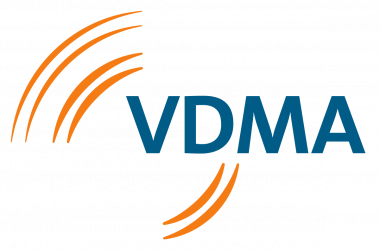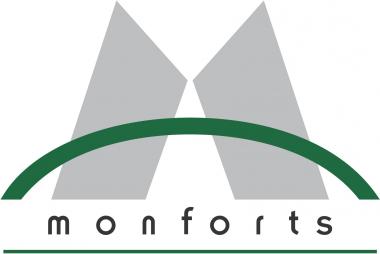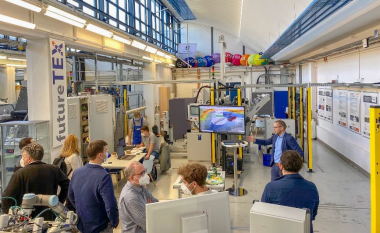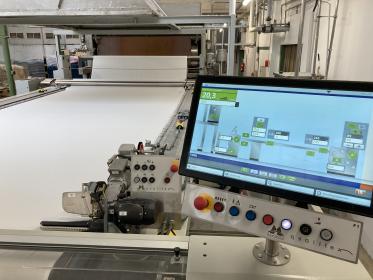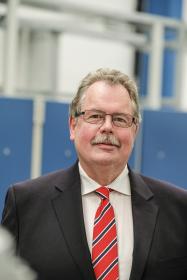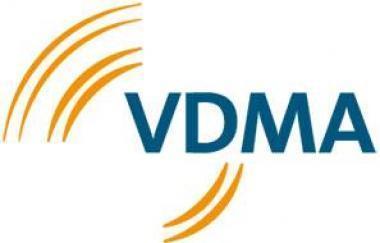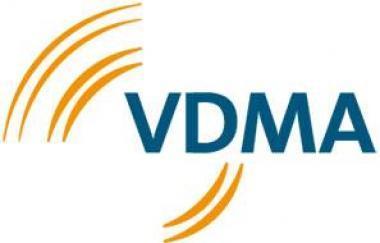Hochschule Albstadt-Sigmaringen: Neue Maschinentypen für textile Studiengänge
In den Laboren der textilen Studiengänge an der Hochschule Albstadt-Sigmaringen stehen pünktlich zum Start ins Sommersemester zwei brandneue Maschinen, die den Studierenden ebenso zur Verfügung stehen wie Interessierten aus der Textilindustrie.
„Wir testen gerade den Prototypen einer Flüssigklebemaschine“, sagt Prof. Matthias Kimmerle. Dabei handelt es sich um eine Weltneuheit, die es bislang noch nirgendwo sonst gibt – möglich wurde diese Leihgabe durch die hervorragenden Kontakte der Hochschule zum japanischen Hersteller. Das Neue daran: Anstatt Kleidung zu nähen, werden die einzelnen Schnittteile geklebt. „Die Ergebnisse sind sehr überzeugend“, sagt Matthias Kimmerle. „Die Kantenführung erledigt die Maschine vollautomatisch und hält dabei die Abstände exakt und konstant ein.“
Ein Wäschehersteller aus Albstadt hat die Maschine bereits erfolgreich ausprobiert, „und wir selber testen sie mit Funktionsmaterialien, wie sie bei Unterwäsche oder Sportkleidung benutzt werden“. Hier seien störende Nähte häufig unerwünscht, und die Klebetechnik kann genau dieses Problem lösen. Die Maschine steht noch ein paar Wochen in Albstadt zur Verfügung, bevor sie zu einem Textilunternehmen nach Österreich umzieht.
In der Lernfabrik der textilen Studiengänge steht außerdem seit vergangener Woche der Prototyp eines neuen Etikettierers (angedockt an einen Zünd-Cutter), der die Schnittteile nach dem Ausschneiden automatisch etikettieren kann. Eine solche Maschine sei für viele Branchen nützlich, „insbesondere dann, wenn in der Produktion viele Teile hergestellt werden, die sich ähneln“, sagt Matthias Kimmerle. Ermöglicht wurde die Anschaffung durch Marc Witzemann, Geschäftsführer von Rebstock Consulting, der die Maschinen des Herstellers in Deutschland vertreibt und die Hochschule seit Jahren mit der Dauerleihgabe von Cuttern unterstützt. „Es ist uns ein großes Anliegen, dass Studierende und kleinere Unternehmen die Möglichkeit bekommen, auf neuer Technik etwas zu testen“, sagt er. Wie wichtig genau das im sehr praxisbezogenen Studium an der Hochschule ist, betont auch Matthias Kimmerle. „Die Maschine passt zudem perfekt zu unserer Microfactory.“ Diese ermöglicht es, selbst kleine Losgrößen von nur einem Stück auf Kundenwünsche angepasst herzustellen.
Hochschule Albstadt-Sigmaringen


